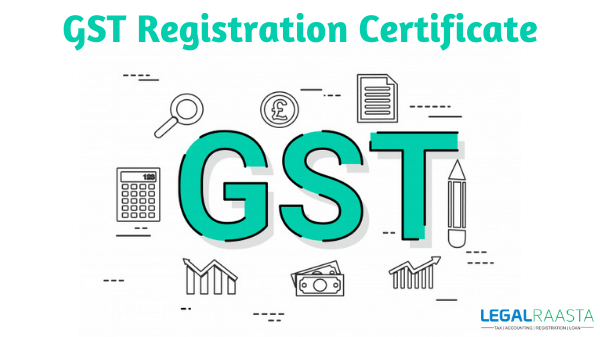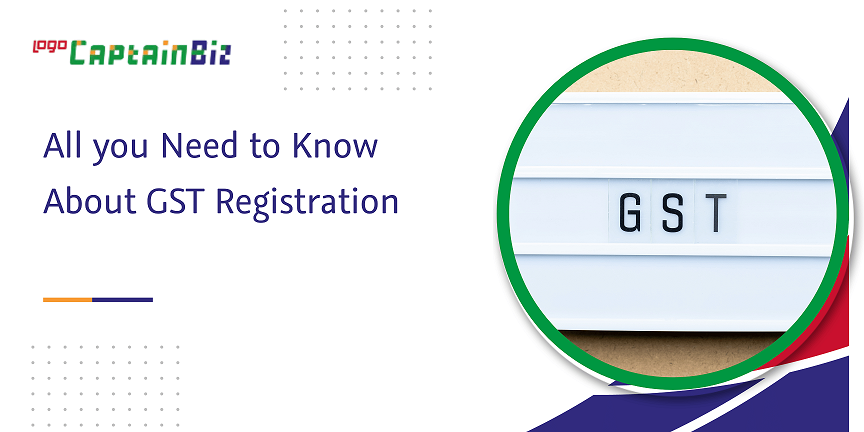Why Singapore GST Registration is Crucial for Your Startup
Why Singapore GST Registration is Crucial for Your Startup
Blog Article
Optimizing Tax Obligation Performance: Professional Tips on Navigating the GST Registration Maze for Local Business
Navigating the complex landscape of Goods and Solutions Tax (GST) registration can be a labyrinthine job for small companies aiming to optimize their tax performance. Understanding the qualification criteria, meticulous paperwork requirements, strategic timing considerations, and adept enrollment process pointers can significantly impact a business's monetary standing. Conformity with GST policies is paramount, and adhering to best techniques can streamline operations and avoid prospective risks. In this discussion, we will certainly explore professional insights and actionable suggestions that can empower small companies to browse the GST enrollment puzzle properly and enhance their tax effectiveness.
Eligibility Requirements
Eligibility demands for Local business GST Registration include specific requirements that organizations should fulfill to comply with tax obligation guidelines. To receive GST enrollment, an organization has to have a yearly turn over exceeding the threshold established by the tax obligation authorities, which varies by country. In addition, companies included in inter-state supply of services or goods, or those offering products online, may be required to register for GST, irrespective of their turnover. It is vital for businesses to precisely identify their qualification based on these turnover limits to prevent fines for non-compliance. Singapore GST Registration.

Documents Needs
To successfully finish the process of GST enrollment, local business should ensure they have all required documents in order. The needed documents commonly consists of evidence of organization registration or address, unification and identification proofs of business proprietor, photographs, bank account details, and evidence of the principal workplace. Furthermore, businesses need to supply details of their organization tasks, consisting of the goods or services supplied. It is crucial to ensure that all papers are exact, approximately day, and in the defined style to avoid delays or rejections throughout the enrollment procedure.
Maintaining all required documentation organized and conveniently available can improve the registration process and assistance services comply with the demands successfully. Precise focus to detail and adherence to the documents guidelines are vital for an effective GST enrollment process for tiny organizations.
Timing Factors To Consider
Taking into consideration the essential documentation needs have actually been carefully dealt with, the following vital facet for tiny organizations starting the GST registration process is the critical management of timing considerations. Timing plays a crucial role in GST enrollment, affecting not only conformity but additionally monetary facets of the service. Local business require to thoroughly prepare the timing of their GST enrollment to take full advantage of benefits and minimize prospective risks.

In addition, services must align the timing of their GST registration with their functional preparedness. Ample prep work, such as upgrading audit systems and training linked here team, is important to seamlessly incorporate GST needs right into daily procedures. By tactically managing timing considerations, small companies can navigate the GST registration process effectively and enhance their tax performance.
Enrollment Process Tips
Efficiently browsing the GST registration process needs small companies to execute positive and calculated enrollment procedure suggestions. This consists of service enrollment documents, proof of address, bank declarations, and recognition proofs of the service owners.
In addition, recognizing the limits and requirements for GST registration based upon the details state or territory where the business operates is crucial. Some states have different turnover thresholds that cause compulsory registration, so being informed concerning these thresholds can aid services prepare in advance.
Another important idea is to consider seeking expert help from accounting professionals or tax obligation professionals who focus on GST enrollment. Their knowledge can enhance the procedure, minimize mistakes, and make sure conformity with all laws.
Conformity Ideal Practices
Little organizations must prioritize conformity to stay clear of penalties and preserve an excellent standing with tax authorities. Little organization proprietors must frequently assess government guidelines and seek expert suggestions if needed to ensure they are satisfying all needs. By including these compliance best practices into their procedures, tiny businesses can navigate the complexities of GST registration with confidence and effectiveness.
Verdict
Finally, local business can browse the GST enrollment labyrinth by ensuring they meet eligibility criteria, gather required paperwork, think about timing implications, comply with registration process suggestions, and follow compliance ideal techniques. By maximizing tax effectiveness via proper GST enrollment, organizations can enhance their financial monitoring and procedures.
Navigating from this source the detailed landscape of Product and Services Tax (GST) enrollment can be a labyrinthine job for small businesses aiming to maximize their tax obligation effectiveness.Qualification demands for Small Service GST Registration encompass details standards that businesses need to satisfy to conform with tax obligation laws. The needed documentation generally includes proof of business registration or consolidation, address and identification evidence of the business find this owner, pictures, bank account information, and evidence of the primary area of company. Additionally, businesses need to supply details of their company tasks, consisting of the products or services supplied.Efficiently browsing the GST enrollment process needs tiny businesses to execute critical and proactive registration procedure pointers.
Report this page